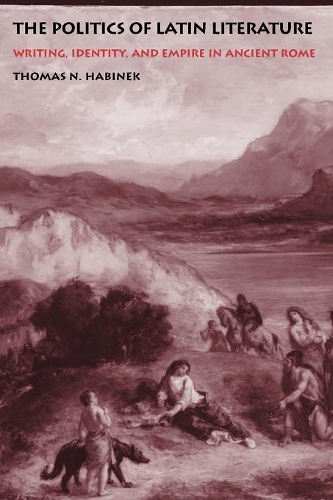
The Politics of Latin Literature: Writing, Identity, and Empire in Ancient Rome
(Paperback)
Publishing Details
The Politics of Latin Literature: Writing, Identity, and Empire in Ancient Rome
By (Author) Thomas N. Habinek
Princeton University Press
Princeton University Press
11th February 2002
United States
Classifications
Professional and Scholarly
Non Fiction
European history
Ancient history
870.9
Short-listed for Choice Magazine Outstanding Reference/Academic Book Award 1998
Physical Properties
Paperback
248
Width 152mm, Height 229mm
369g
Description
This text describes the relationship between Latin literature and the politics of ancient Rome. The author argues that literature was a cultural practice that emerged from and intervened in the political and social struggles at the heart of the Roman world. He considers works by such authors as Cato, Cicero, Horace, Ovid, and Seneca. He aims to demonstrate that, from its beginnings in the late third century BC to its eclipse by Christian literature 600 years later, classical literature served the evolving interests of Roman and aristocratic power.
Reviews
One of Choice's Outstanding Academic Titles for 1998 "The importance of this book, the reason why it should be required reading for anyone interested in Roman society and culture, lies not so much in the answers it offers as in the questions it provokes and the new lines of enquiry it suggests... [It will] change the way we think about Latin literature."--Neville Morley, Classical Review "A superb analysis... These stimulating essays contribute to and complicate current debates about Latin literature."--Choice
Author Bio
Thomas N. Habinek is Professor of Classics at the University of Southern California and author of The Colometry of Latin Prose.
